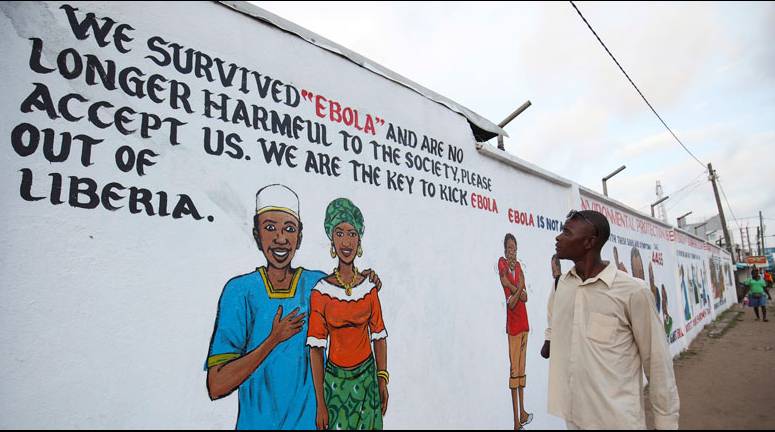Μετά από ένα δύσκολο 2014 στον ανθρωπιστικό τομέα, ο επίτροπος κ. Χρήστος Στυλιανίδης πιστεύει πως το γεμάτο προκλήσεις 2015 όλοι οι φορείς ανθρωπιστικής βοήθειας πρέπει να συνεργαστούν και να κλιμακώσουν τις προσπάθειές τους για την αύξηση της χρηματοδότησης για την ανθρωπιστική βοήθεια.
Nobody can deny the fact that 2014 was a particularly challenging year for peace and stability and, as a result, for the international humanitarian community. The past year will be remembered for the unprecedented level of humanitarian crises. There were four simultaneous level-three crises: Syria, Iraq, Central African Republic and South Sudan. At the same time, 2014 witnessed the outbreak of the deadly Ebola epidemic. In light of the shortage of resources, these humanitarian disasters have dramatically increased the pressure on the humanitarian actors.
The new year will be equally challenging. The above mentioned crises will continue to be in the spotlight. In addition, however, there are many protracted crises that deserve sustained humanitarian assistance: Palestine, the Democratic Republic of Congo, Mali, Colombia and Myanmar to name only a few.
The staggering figures speak for themselves. Consider one of these figures: for the first time since World War II, the number of forcibly displaced persons exceeded fifty million.
Under this dramatic situation, what are the major challenges for the international humanitarian community in 2015?
First, continuing the essential assistance to people in need. To make a real difference, alleviate suffering and give hope to the most vulnerable. As international humanitarian actors we must not arrive with too little, too late.
Second, to match the needs with adequate funding in order to follow up on our commitments and to remain credible within the international humanitarian community. We have to admit that there are difficulties stemming from the financial crisis. However, we cannot allow the disruption of humanitarian aid activities. This is not an option. All humanitarian actors must come together and scale up our efforts to increase the funding for humanitarian aid.<br>
Third, to access the most vulnerable victims of the humanitarian crises. The shrinking of the humanitarian space remains a major problem at a time when the needs are growing. The respect of the International Humanitarian Law (IHL) is not negotiable. Unfortunately, however, more and more frequently the parties in conflict violate IHL. We must, therefore, give priority to tackling this challenge as it will determine our ability to adequately help people in need.
Fourth, to improve our ability to prevent humanitarian crises. The principle «prevention is better than cure» is today more relevant than ever. It is not an easy task. But it is the best recipe to avoid disasters. To that end, we must invest in the different dimensions of resilience building in the short, medium and long terms. From responding to the immediate needs, to rebuilding the infrastructures to assisting in the development of strong and effective governing institutions.
Fifth, enhance and improve the international humanitarian system and the coordination of all humanitarian players. We must seriously review the way the international humanitarian system operates. The upcoming World Humanitarian Summit that will take place in Istanbul in 2016, is a good opportunity to formulate ways to improve the functions of this system. To make it more efficient and more effective. Indeed, the discussion about constantly improving the humanitarian assistance is ongoing. It is an issue that remains a challenge. At the same time, the optimal use of limited resources is also a challenge.
All humanitarian actors must come together and scale up our efforts to increase the funding for humanitarian aid
In order to respond to the challenges and meet the needs we must work closely together in a coordinated fashion. Nobody can solve humanitarian problems alone. The responsibility to do so is collective. And so must be our actions. The European Commission, under the leadership of President Jean-Claude Juncker, is following this principle of collective action and is adapting the way we provide aid to the new conditions.
Our assistance is becoming more effective by building stronger bridges between humanitarian aid and development assistance. We are moving from crisis response to crisis management. Hence, our work focuses not only on the immediate response to disasters and crises, but, equally importantly, on prevention and preparedness.
Finally, and sifting through this multitude of challenges, there are three variables which can become major «game changers» in the humanitarian field during 2015:
First, the situation in Syria and especially the fate of Aleppo. Up to date, as a result of the Syria crisis, more than 12 million people are in need of humanitarian aid (5 million of them children). If Aleppo falls into the hands of extremists, this number will rise exponentially. It is crucial, therefore, for the international community to renew its efforts for a political solution. This is the only way to prevent a worse humanitarian catastrophe.
Second, the development of an effective Ebola vaccine. It is too early to judge progress. Signs are positive but we must be cautiously optimistic.
Third, the outcome of the consultations leading to the World Humanitarian Summit in 2016, the bulk of which will take place during 2015. A significant point in this process will be the Budapest consultations on 3-4 February. The EU is in the process of formulating its proposals and is engaging in a constructive dialogue with our partners. The goal is to arrive at a mutually acceptable framework that will make the international humanitarian summit more efficient and more effective.
The European Union is the leading provider of humanitarian aid. We are determined to remain the leader in this field. Because helping the most vulnerable is at the core of the European project. To that end, the Union is ready to work hand-in-hand with the other humanitarian players. In 2015 the international humanitarian community will face unprecedented challenges. We have no other option but to match those challenges with adequate response.
Πηγή: NEWEUROPE.BE


Δεν υπάρχουν σχόλια για το άρθρο "Οι προκλήσεις για την διεθνή ανθρωπιστική κοινότητα το 2015"